Editorial Board

Carolyn Conner Seepersad is a Woodruff Professor in the George W. Woodruff School of Mechanical Engineering at the Georgia Institute of Technology, where she leads the Digital Design and Manufacturing research group. Carolyn joined Georgia Tech after 18 years as a faculty member in the Walker Department of Mechanical Engineering at The University of Texas at Austin, where she founded the Center for Additive Manufacturing and Design Innovation. She received her PhD and MS from the Georgia Institute of Technology, a BA from Oxford University (as a Rhodes Scholar), and a BS from West Virginia University. Her research interests include design for additive manufacturing, simulation-based design of materials and structures, and process innovation in additive manufacturing. She is an elected member of the Advisory Board of the Design Society and has served as a member and chair of the ASME Design Engineering Division (DED) Executive Committee, an Associate Editor of JMD, and a member of the editorial boards of Additive Manufacturing Letters and 3D Printing and Additive Manufacturing. Dr. Seepersad was the recipient of the ASME Design Automation Award (2022) and best conference paper awards from ASEE, ASME Design Theory and Methodology, ASME Design Automation, and ASME Design Education Conferences.
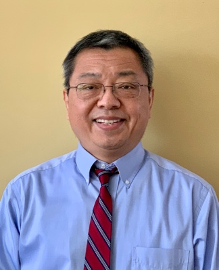
Dr. Qiaode Jeffrey Ge, ASME Fellow, is Professor and Chair, Department of Mechanical Engineering, Stony Brook University, the State University of New York. He received his Ph.D. in mechanical engineering from University of California, Irvine, M.S. in mechanical engineering and applied mechanics from University of Pennsylvania, and dual B.S. in mechanical and electrical Engineering from Shanghai Jiaotong University. He was elected to serve as chair of ASME Mechanisms and Robotics Committee, chair of ASME Design Engineering Division, and chair of the Constitution Committee of IFToMM, the International Federation for the Promotion of Mechanisms and Machine Science. He was past Associate Editor of ASME Journal of Mechanical Design, ASME Journal of Mechanisms and Robotics, and International Journal of Mechanics Based Design of Structures and Machines. Dr. Ge is also a member of US National Academy of Inventors.
Advisory Board
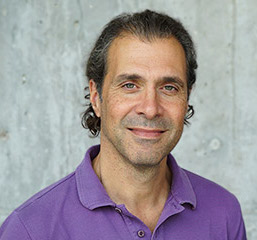
Dr. Kokkolaras is Professor, and the founding director of the Systems Optimization Laboratory, at McGill University’s Department of Mechanical Engineering. He received his diploma in Aerospace Engineering from Technische Universität München and his Ph.D. in Mechanical Engineering from Rice University. He is currently serving as the Associate Dean for Faculty Affairs at the Faculty of Engineering. Dr. Kokkolaras joined McGill from the University of Michigan at Ann Arbor (UM), where he held research faculty appointments at the Department of Mechanical Engineering (primary) and the UM Transportation Research Institute (joint/courtesy); he is a recipient of the UM College of Engineering Outstanding Research Scientist Award. Dr. Kokkolaras is an ASME Fellow and is currently serving as Publications Chair of the ASME Design Engineering Division and has previously served as Chair of the Design Automation Executive Committee of the ASME Design Engineering Division, Program and Conference Chair of the ASME Design Automation Conference, and Program Co-Chair of the International Conference on Engineering Design.

Katja Hölttä-Otto is Professor of Engineering Design, Mechanical Engineering, at the University of Melbourne, Australia. Prior to that she served as an Associate Professor of product development at the Design Factory at Aalto University, Finland, an Associate Professor in Engineering Product Development at the Singapore University of Technology and Design, and earlier at the University of Massachusetts Dartmouth. She received her M.Sc. (2000) and Ph.D. (2005) in Mechanical Engineering from Helsinki University of Technology. She worked as a visiting scholar at Center for Innovation in Product Development at the Massachusetts Institute of Technology. Professor Hölttä-Otto teaches project-based design courses as well as courses on design theory and methodology. Her research areas of specialization include user centered design including empathy, creativity and need finding in engineering design, as well as design for circular economy, modular product platform development and interdisciplinary engineering education. She is a recipient of the NSF CAREER award and multiple best paper awards. She is an ASME fellow.
DEI Advocate

Dr. Scott Ferguson is an Associate Professor in the Department of Mechanical and Aerospace Engineering at North Carolina State University, and runs the Systems, Decisions, and Objectives Lab. He and his students explore and advance how engineers design systems, arrive at actionable decisions, and frame problem objectives when faced with unresolvable uncertainties. He completed his PhD in Mechanical Engineering from the University at Buffalo in 2008, an MS in Mechanical Engineering in 2004, and BS degrees in Mechanical Engineering and Aerospace Engineering in 2002. He is the recipient of the NSF CAREER award (2011), the ASME Design Automation Young Investigator Award (2014), the NC State Outstanding Teacher Award (2012) and the ASEE New Mechanical Engineering Educator Award (2015). He is the current chair of the ASME DED Student and Early Career Professionals Committee, is a member of the ASME Design Automation Conference Executive Committee, and serves on the AIAA MDO TC.
Featured Articles Editor

Faez Ahmed is an assistant professor in the Department of Mechanical Engineering at MIT, where he leads the Design Computation and Digital Engineering (DeCoDE) lab. His research focuses on developing new machine learning and optimization methods to study complex engineering design problems. His recent work includes proposing automated design synthesis methods to generate novel high-performance designs, creating the first provably optimal algorithm for the diverse matching problem, and building computationally efficient ways for combining physics with human expert knowledge to design new products. Before joining MIT, Ahmed was a postdoctoral fellow at Northwestern University and completed his PhD in mechanical engineering at the University of Maryland. He also worked in the railway and mining industry in Australia, where he pioneered data-driven predictive maintenance and renewal planning efforts.
Associate Editors

Dr. Alba Perez Gracia is an Affiliate Faculty at Idaho State University and an Associate Professor at the Universitat Politecnica de Catalunya in Barcelona, Spain. She is also working at Remy Robotics SL, a company devoted to make robotics technology a part of the restaurant industry.
Alba earned her BS in Industrial Engineering from the Universitat Politecnica de Catalunya in Barcelona, and her MS and PhD in Mechanical and Aerospace Engineering from the University of California, Irvine.

Ashvin Hosangadi, Ph.D, is Vice-President at CRAFT Tech where he leads a development team for CFD software. Dr. Hosangadi received his B.Tech from IIT Kharagpur, India, and his Ph.D. from Penn State both in Mechanical Engineering. He has co-authored a chapter on “CFD Analysis of Flow and Performance” for the Pump Handbook. Among other awards, he received the 2013 Sankaraiyer Gopalakrishnan-Flowserve Pump Technology Award for expertise in pump technology. Dr. Hosangadi has also received three Space Achievement Act Awards from NASA for the development of software related to cryogenic fluid analysis for liquid rocket engine.
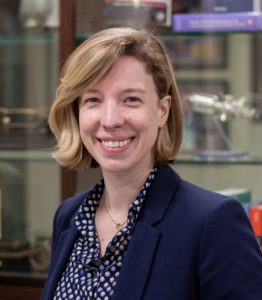
Dr. Astrid Layton is an assistant professor and Donna Walker Faculty Fellow at Texas A&M University in the J. Mike Walker ’66 Department of Mechanical Engineering. She received her Ph.D. in Mechanical Engineering from Georgia Institute of Technology in Atlanta, Georgia. She was elected to serve as member and chair of ASME’s Design Theory and Methodology technical committee. She is also a guest editor for IEEE’s Open Journal of Systems Engineering. She is the recipient of several awards, including a 2021 ASME International Design Engineering Technical Conferences and Computers & Information in Engineering (IDETC-CIE) best paper award. Dr. Layton research focuses on bio-inspired systems design, using biological ecosystems as inspiration for achieving sustainability and resilience in the design of complex human networks/systems/systems of systems.
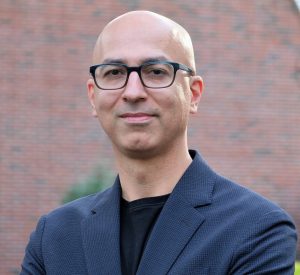
Babak Heydari is an associate professor at the department of mechanical and industrial engineering, and affiliate faculty at the School of Public Policy and the Network Science Institute at Northeastern University. His interdisciplinary research aims at establishing a bridge between engineering system design and computational social sciences where he uses network science to study the architecture of socio-technical and human-AI systems, resilience and its relationship with the emergence of collective behavior and social norms, platform-based sharing economy systems, and co-evolution of structure and behavior in complex systems. He received his Masters and Ph.D. from the Department of Electrical Engineering and Computer Science at UC Berkeley and has 3 years of Silicon Valley start-up experience. He has been the PI and Co-PI of several projects sponsored through NSF, DARPA, INCOSE, SERC and a number of private corporations. Professor Heydari is a recipient of the national science foundation CAREER award.
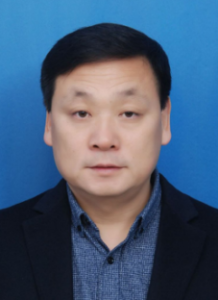
Dr. Bin Zi is currently the Dean and Full Professor of the School of Mechanical Engineering, and the Director of the Robotics Institute in Hefei University of Technology, China. He received his Ph.D. in Mechatronic Engineering from Xidian University, China, in 2007. He was a visiting scholar with the Chair of Mechanics and Robotics, University of Duisburg-Essen, Germany, from 2011 to 2012, and a visiting professor with the Robotics and Automation Laboratory, Institute of Technology, University of Ontario, Canada, in 2015. Dr. Zi has received the 2019 National Science Fund for Distinguished Young Scholars of China. He has been invited as the keynote/plenary speaker in several academic symposiums and conferences. He also served on the technical program or organization committees of several ASME and IEEE conferences.

Bryony DuPont is an Associate Professor of Mechanical Engineering at Oregon State University. She received her B.S. in Mechanical Engineering from Case Western Reserve University and her M.S. and Ph.D. in Mechanical Engineering from Carnegie Mellon University. Her research is in design automation, which is the application of computational algorithms and simulation to help engineering designers make more informed decisions earlier in the design of products and systems. Her work has applications in green design, specifically the design of renewable energy systems and environmentally sustainable products. Dr. DuPont has successfully received research funding from the US Department of Energy, the National Science Foundation, multiple national laboratories and industrial partners. She holds a joint appointment at the National Renewable Energy Laboratory. She teaches in engineering design, wind energy systems design, sustainable product design, and design for manufacturing.

Carl Nelson is a professor in the Department of Mechanical and Materials Engineering at the University of Nebraska-Lincoln. He received degrees in mechanical engineering from the University of Oklahoma (BS) and Purdue University (MS, PhD). He is a Fellow of ASME and has served as chair of the ASME Mechanisms and Robotics Committee. His research focuses on mechanical design, robotics, and applications including healthcare. He previously served as an associate editor for ASME Journal of Medical Devices.

Dr. Chao Hu is currently an Associate Professor in the Department of Mechanical Engineering at the University of Connecticut and the director of the Reliability Engineering and Informatics Laboratory (REIL) at UConn. He received his B.E. degree in Engineering Physics from Tsinghua University (2007) and his Ph.D. degree in Mechanical Engineering (Reliability Engineering) from the University of Maryland, College Park (2011). Dr. Hu’s research interests are engineering design under uncertainty, degradation diagnostics and prognostics of lithium-ion batteries, and prognostics and health management. He is a two-time recipient of the Highly Cited Research Paper Award (2012-2013 and 2020) in the Journal of Applied Energy, the recipient of the 2018 ASME Design Automation Young Investigator Award, and a recipient of the Best Paper Awards at the ASME Design Automation Conference (2013) and the IEEE International Conference on Prognostics and Health Management (2012).
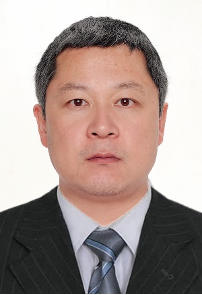
Chenkun Qi is an Associate Professor, School of Mechanical Engineering, Shanghai Jiao Tong University, China. He received his Ph.D. degree in mechanical engineering from the City University of Hong Kong, in 2009. He received his B.E. degree in power mechanical engineering and the M.E. degree in control engineering from the Shanghai Jiao Tong University, China, in 2001 and 2004 respectively. His research interests include design and control of parallel robots, design and control of multi-legged robots, design of parallel robotic mechanisms, micro-nano parallel manipulators, space docking simulation robot, distributed parameter system, system identification, and robot control.

Christine Toh is an Assistant Professor in IT Innovation in the School of Interdisciplinary Informatics at the University of Nebraska Omaha. She obtained her PhD in Industrial Engineering at the Pennsylvania State University. Her research focuses on studying human decision-making and the antecedents of creativity in design, and developing an understanding of the larger context of creativity and innovation in engineering and design. Christine teaches classes in IT Innovation, Design, and Human-Centered Computing. Her research to date has spanned topics such as individual attributes and biases in team decision-making, perceptions and preferences for creativity during concept selection, and the visual representation of design artifacts in virtual engineering learning paradigms. Her current research interests include new technology-enabled information platforms for design, design creativity in technology startup environments, and the nature of relationships between humans and machines.

Dr. Christopher Hoyle is currently an Arthur E. Hitsman Faculty Scholar Associate Professor in the Mechanical Engineering Department at Oregon State University. His research interests are focused upon decision making in engineering design, with emphasis on the early design phase when uncertainty is high and the potential design space is large. His areas of expertise are uncertainty propagation methodologies, Bayesian statistics and modeling, stochastic consumer choice modeling, optimization and design automation. He received his PhD from Northwestern University in Mechanical Engineering in 2009 and his Master’s degree in Mechanical Engineering from Purdue University in 1994. He served as an Adjunct Professor of Mechanical Engineering at Illinois Institute of Technology in 2009 and was an Intern at NASA Ames in 2006. He was previously a Design Engineer, an Engineering Manager, and a Program Manager at Motorola for 10 years before enrolling in the PhD program at Northwestern University.
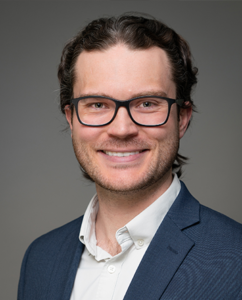
Christopher McComb is an Associate Professor in the Department of Mechanical Engineering at Carnegie Mellon University. He received dual B.S. degrees in Civil and Mechanical Engineering from California State University-Fresno in 2012. Later he attended Carnegie Mellon University as a National Science Foundation Graduate Research Fellow and obtained his M.S. and Ph.D. in Mechanical Engineering in 2014 and 2016, respectively. His research expertise is in design computation, with specific focuses on machine learning for engineering design, agent-based modeling of human systems, and human-AI collaboration. Application areas include design for additive manufacturing, marine energy devices, and drone delivery systems.

Dr. Douglas Allaire is an Associate Professor and Sallie and Don Davis ’61 Faculty Fellow in the J. Mike Walker ’66 Department of Mechanical Engineering at Texas A&M University where he directs the Computational Design Lab (CDL). He holds B.S., M.S., and Ph.D. degrees from the Department of Aeronautics and Astronautics at the Massachusetts Institute of Technology. His current research focuses on the development of computational methods for the analysis, design, and operation of complex systems. He is specifically interested in uncertainty quantification, multidisciplinary design optimization, and machine learning and has recently applied his research to unmanned aerial vehicle systems and the design and discovery of advanced materials. He is the recipient of several awards, including the 2018 ASME Computers and Information in Engineering Division Young Engineer Award and the ASME DAC Best Paper award in 2018.

Dr. Eun Suk Suh is an Associate Professor in the Graduate School of Engineering Practice at Seoul National University, Korea. He completed his Ph.D. in Engineering Systems from Massachusetts Institute of Technology in 2005, an M.Eng. in Mechanical Engineering from Cornell University in 1995, and B.S. in Mechanical Engineering from Clarkson University in 1994. His research interests include system architecture design, design for system properties, product design, and technology infusion analysis. Dr. Suh’s previous professional experiences includes chassis design engineering at Hyundai Motor Company and system architecture research and development at Xerox Corporation. He has several international patents and peer reviewed journal publications in the area of printing system design, technology infusion and product platform development.
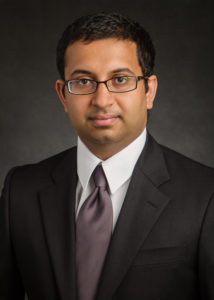
Girish Krishnan is an associate professor in the department of industrial and enterprise systems engineering and an affiliate faculty at Mechanical Sciences and Engineering and Carle-Illinois College of Medicine at the University of Illinois at Urbana-Champaign. His research lies in the intersection of compliant mechanism design and soft robotics with applications in healthcare and agriculture. He is a recipient of several awards including best paper awards at ASME- IDETC conference, Freudenstein young investigator award, NSF CAREER award, and UIUC award for excellence in advising. he has been a Pi and Co- Pi of several projects sponsored through NSF, USDA- NIFA, Center for compact and efficient fluid power research, and General Motors Corp. He received his Ph.D from University of Michigan-Ann Arbor and MS from Indian Institute of Science, India.
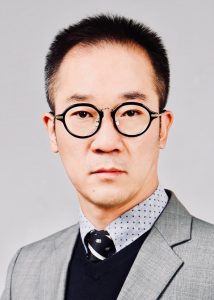
Dr. Ikjin Lee is an associate professor of Mechanical Engineering at Korea Advanced Institute of Science and Technology (KAIST). He received his M.S. Diploma from the Seoul National University (Korea) in 2003, and Ph.D. (2008) in Mechanical Engineering from the University of Iowa. From 2011 to 2013, he was in the University of Connecticut as an assistant professor, and joined KAIST at 2013. In 2009, he received the International Society of Structural and Multidisciplinary Optimization (ISSMO)/Springer prize for a young scientist.

Jessica Menold is an Assistant Professor in the School of Engineering Design and Innovation and the Department of Mechanical Engineering at Penn State. She is the director of the Technology and Human Research in Engineering Design lab and conducts research at the intersection of engineering design, manufacturing, and new product development. Her current work focuses on improving the efficiency and effectiveness of new product development processes, integrating design thinking into engineering education, identifying the factors that contribute to or detract from the success of high-tech startups, and Design for Inspection in advanced manufacturing environments. Her work is dedicated to improving the design of engineered products and systems through evidence-based design methods, rapid prototyping, and performance analysis. Her work is supported by the United States National Science Foundation and the United States Air Force Office of Scientific Research. Dr. Menold is also the Associate Director for Outreach and Inclusion at the Bernard M. Gordon Learning Factory, Penn State’s Makerspace.
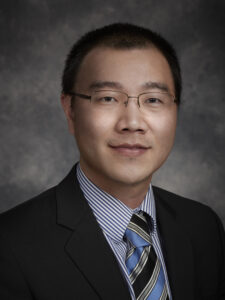
Dr. Jie Zhang is currently an Associate Professor in the Department of Mechanical Engineering and Department of Electrical and Computer Engineering (Affiliated) at the University of Texas at Dallas (UTD). Dr. Zhang received his Ph.D. (2012) in Mechanical Engineering from Rensselaer Polytechnic Institute (RPI), Troy, NY, USA. His research expertise and interests are sustainable energy systems, machine learning, complex engineered systems, and multidisciplinary design optimization. His research has been funded by the U.S. Department of Energy, Department of Defense, National Science Foundation, and energy industry. His major awards include: ONR’s Young Investigator Award (2020), ASME Design Automation Young Investigator Award (2020), Fulbright U.S. Scholar Award (2022-2023), Invited Participant of US-Africa Frontiers of Science, Engineering, and Medicine (2024), 13 best paper awards from multiple journals and IEEE, ASME, AIAA, JSM conferences.

Dr. Jitesh H. Panchal is an Associate Professor in the School of Mechanical Engineering at Purdue University. He received his BTech (2000) from Indian Institute of Technology (IIT) Guwahati, and MS (2003) and Ph.D. (2005) in Mechanical Engineering from Georgia Institute of Technology. Dr. Panchal’s research interests are in the computational design of complex engineering systems with a focus on three areas a) decision making in engineering systems design, b) collective innovation, and c) cyber-physical systems for design and manufacturing. He is a co-author of the book titled “Integrated Design of Multiscale, Multifunctional Materials, and Products”. He is a recipient of CAREER award from the National Science Foundation (NSF), Young Engineer Award and three best paper awards from the ASME International Design Engineering Technical Conferences (IDETC) and Computers and Information in Engineering (CIE) conference, and a university silver medal from IIT Guwahati.

Dr. Norato is currently an Associate Professor in Mechanical Engineering at the University of Connecticut, which he joined in 2014. He holds M.Sc. (2003) and Ph.D. (2005) degrees in Mechanical Engineering from the University of Illinois at Urbana-Champaign and a Bachelor’s degree in Mechanical Engineering from the Universidad Nacional de Colombia (1997). Prior to joining UConn, he worked for and led the Product Optimization group at Caterpillar, where he and his team researched numerical methods and developed computational tools for structural and multidisciplinary optimization. Dr. Norato led the development of Caterpillar’s in-house topology optimization code, as well as the development of a method and tool for optimization of welding sequences to reduce weld-induced distortion, for which he and his collaborators received Caterpillar’s Move the Mountain Award in 2014. His current research interests lie in incorporating failure, geometric, manufacturing and cost requirements in computational topology and shape optimization techniques for the design exploration of novel and highly efficient structures and architected materials. Dr. Norato is a 2020 Air Force Research Lab Summer Fellow, the recipient of the 2019 ASME Design Automation Young Investigator Award, a 2018 NSF CAREER awardee and a recipient of the 2017 Office of Naval Research Young Investigator Program award.
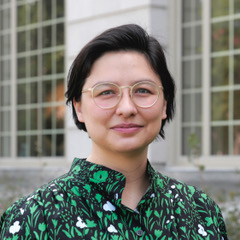
Dr. Kate Fu is an Associate Professor of Mechanical Engineering at University of Wisconsin-Madison. From 2014 to 2021, she was an Assistant and Associate Professor of Mechanical Engineering at Georgia Institute of Technology. Prior to these appointments, she was a Postdoctoral Fellow at Massachusetts Institute of Technology and Singapore University of Technology and Design (SUTD). In May 2012, she completed her Ph.D. in Mechanical Engineering at Carnegie Mellon University. She received her M.S. in Mechanical Engineering from Carnegie Mellon in 2009, and her B.S. in Mechanical Engineering from Brown University in 2007. Dr. Fu is an NSF CAREER awardee and a recipient of the ASME Design Engineering Division (DED) Design Theory and Methodology (DTM) Young Investigator Award.

Professor Kate S. Whitefoot is an Associate Professor of Mechanical Engineering and Engineering & Public Policy at Carnegie Mellon University. She is a member of the NextManufacturing Center for additive manufacturing research and a Faculty Affiliate at the Carnegie Mellon Scott Institute for Energy Innovation. Prior to her current position, she served as a Senior Program Officer and the Robert A. Pritzker fellow at the National Academy of Engineering where she directed the Academy’s Manufacturing, Design, and Innovation program. Professor Whitefoot’s research bridges engineering design theory and analysis with that of economics to inform the design and manufacture of products and processes for improved adoption in the marketplace. Her research interests include sustainable transportation and manufacturing systems, the influence of innovation and technology policies on engineering design and production, product lifecycle systems optimization, and automation with human-machine teaming.
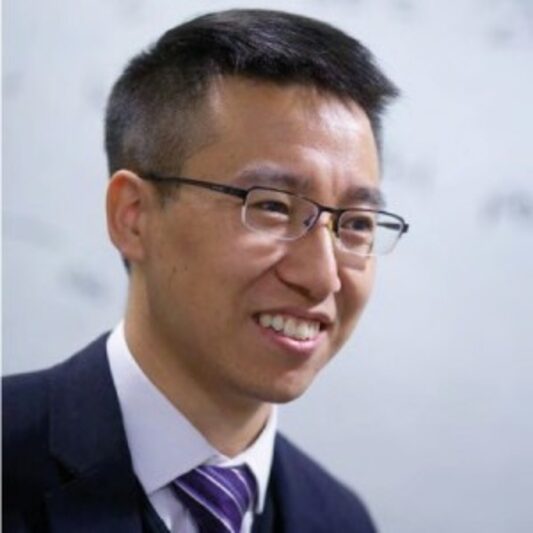
Dr. Ketao Zhang is currently an Assistant Professor in Robotics, Director of the Robotic Systems Research (RSR) group within the Centre for Advanced Robotics (ARQ) and Deputy for Industry Engagement of the Centre for Intelligent Transport in the School of Engineering and Materials Science at Queen Mary University of London (QMUL). His research focuses on the design theory of reconfigurable mechanisms and the development of origami- and bio-inspired robotic systems. He is the author of over 70 articles that have been published in major journals, including Nature, ASME and IEEE Transactions. Dr Zhang is recognised as a leading researcher in his field as evidenced by a host of national/international formal honours received, including the Howard Medal presented by the Institution of Civil Engineers in 2021 and the Best Paper award in ReMAR 2015. Before joining QMUL, he was a post-doctoral researcher at the Aerial Robotics Lab of Imperial College London. He obtained his PhD in Machinery Design and Theory through a joint PhD programme at King’s College London and Beijing Jiaotong University, and his BSc in Mechanical Engineering and Automation with honours from Beijing Jiaotong University.
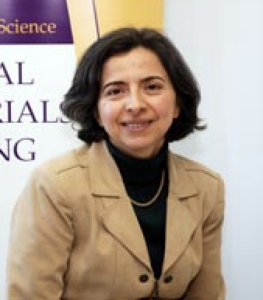
Dr. Leila Notash is a professor in the Department of Mechanical and Materials Engineering of Queen’s University, a Fellow of Engineers Canada and a licensed member of the Professional Engineers Ontario. She obtained her Bachelor of Science degree in Mechanical Engineering from the Middle East Technical University, Ankara, Turkey. She obtained her Master of Applied Science in Mechanical Engineering at the University of Toronto, and received her Ph.D. degree in the Department of Mechanical Engineering at the University of Victoria. Prior to joining Queen’s University, from 1995 to 1996, Dr. Notash was an Assistant Professor at the Department of Industrial & Manufacturing Systems Engineering, University of Windsor. Her current research interest is the investigation and development of serial, parallel and wire-actuated manipulator designs; kinematic, stiffness and force solutions; and calibration methodologies allowing effective and failure safe implementation of the devices; and robotics.

Mark Fuge is an Associated Professor of Mechanical Engineering at the University of Maryland, College Park, where he is also an affiliate faculty in the Institute for Systems Research and a member of the Maryland Robotics Center and Human-Computer Interaction Lab. His staff and students study fundamental scientific and mathematical questions behind how humans and computers can work together to design better complex engineered systems, from the molecular scale all the way to systems as large as aircraft and ships, by using tools from Applied Mathematics and Computer Science. He received his Ph.D. from UC Berkeley and his B.S./M.S. from Carnegie Mellon University. He has received an NSF CAREER award, a DARPA Young Faculty Award, a National Defense Science and Engineering Graduate (NDSEG) Fellowship, and has prior/current support from NSF, NIH, DARPA, ARPA-E, ONR, and Lockheed Martin.
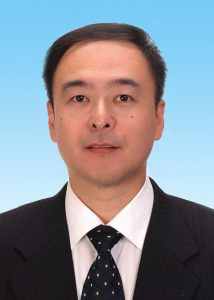
Dr. Ping Zhu is a tenured full professor in the School of Mechanical Engineering at Shanghai Jiao Tong University (SJTU), China. He received his Ph.D. in Mechanical System Engineering from Miyazaki University (Japan) in 2000 and was a postdoctoral research fellow in the School of Mechanical Engineering at SJTU. He is currently the Deputy Director of Automotive Safety Division of SAE-China, a senior member of CMES (Chinese Mechanical Engineering Society), a member of ASME and SAE, and an associate editor for the Journal Advances in Information Mining. Prof. Zhu has received a number of awards including the National Science and Technology Advancement Award, and Shanghai Science and Technology Advancement Award.
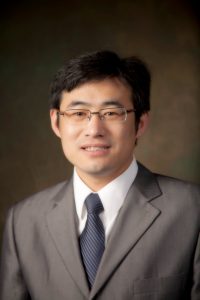
Pingfeng Wang is an Associate Professor in the Department of Industrial and Enterprise Systems Engineering at University of Illinois at Urbana-Champaign (UIUC), and the director of the Reliability Analysis and Safety Assurance (RASA) lab at Illinois. He received his B.S. in 2001 in Mechanical Engineering from University of Science and Technology in Beijing, his M.S. in 2006 in Applied Math from Tsinghua University, and his Ph.D. in 2010 in Mechanical Engineering from University of Maryland. Dr. Wang’s research has been focused on developing new design methods and tools to improve reliability, safety and failure resilience of engineered systems. He is the recipient of the NSF CAREER award (2014), the Young Researcher Award from International Society of Green Manufacturing and Applications (2012), the ASME Design Automation Young Investigator Award (2016), and Best Paper Awards in the ASME Design Automation Conferences (2008 and 2013).
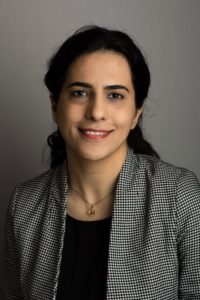
Sara Behdad is an Associate Professor at the Engineering School of Sustainable Infrastructure & Environment at the University of Florida. From 2013 to 2020, she was an Assistant and Associate Professor of Mechanical and Aerospace Engineering and Industrial and Systems Engineering at the University at Buffalo. She received her Ph.D. in Industrial and Enterprise Systems Engineering from the University of Illinois at Urbana-Champaign and her B.S. and M.S. in Industrial Engineering from Tehran Polytechnic. Dr. Behdad leads the Green Engineering Technology for the Community of Tomorrow (GETCOT) Research Laboratory. She has served as a symposium and session chair for the ASME IDETC/CIE and ASME MSEC conferences since 2013. Dr. Behdad served as the ASME Design for Manufacturing and Lifecycle (DFMLC) conference chair and is an ASME DFMLC Technical Committee member. Her expertise lies in product lifecycle engineering, sustainable design, remanufacturing, and decision analysis.

Scarlett Miller is a Professor of Engineering Design and Industrial Engineering at The Pennsylvania State University. She also holds graduate appointments in the Department of Mechanical and Nuclear Engineering, the College of Information Sciences and Technology, and the Department of Surgery at Penn State. She earned her BS and MS in Industrial Engineering from the University of Nebraska-Lincoln and her PhD in Industrial Engineering from the University of Illinois at Urbana-Champaign. Miller has been recognized for her research in several ways including a National Science Foundation Faculty Early Career Development (CAREER) award and the James F. Will Career Development Professorship at Penn State.
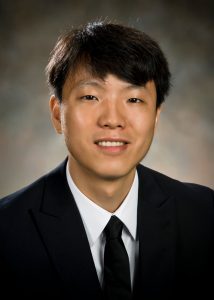
Dr. Sheng Li is an Associate Professor of Mechanical and Materials Engineering at Wright State University. He received his B.S. in Mechanics and Mechanical Engineering from University of Science and Technology of China in 2003, and PhD in Mechanical Engineering from The Ohio State University in 2009. He is an Associate Editor of Mechanism and Machine Theory, and an Associate Editor of ASME Journal of Mechanical Design. He served as the Chair of the STLE Gears and Gear Lubrication Committee. He served as session chair and coordinator for ASME PTG conferences.
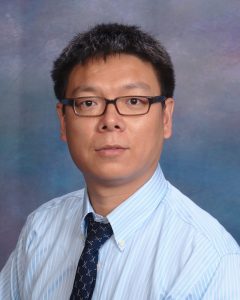
Professor Shikui Chen is an Associate Professor at the State University of New York, Stony Brook. He earned his Ph.D. in mechanical engineering from Northwestern University and a Ph.D. in Automation and Computer-Aided Engineering from the Chinese University of Hong Kong. Dr. Chen’s research interests are in the area of predictive science based design optimization, particularly in structural topology optimization, geometric modeling with level set methods, PDE-constrained optimization, and simulation-driven design under uncertainty. His research work has been funded by government and industry grants including the National Science Foundation (NSF), the University Transportation Research Center (UTRC), Ford Motor Company, Stratasys and SUNY Materials and Advanced Manufacturing Network of Excellence. Dr. Chen is a member of ASME and AIAA. He was the recipient of the ASME Compliant Mechanisms Theory Award in the ASME 31st Mechanisms and Robotics Conference.
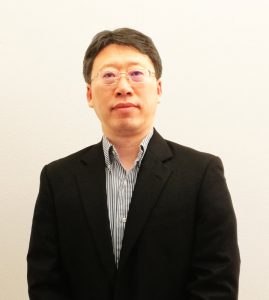
Xu Guo is a Changjiang Chair Professor at Dalian University of Technology (P.R. China), the Dean of the Department of Engineering Mechanics and the Deputy Director of the State Key Laboratory of Structural Analysis of Industrial Equipment. He received his Ph.D. degree from Dalian University of Technology in 1998 and became the faculty member of the same university in 2000. He is now serving as a review editor of Structural and Multidisciplinary Optimization and the Associate Editor of the Theoretical & Applied Mechanics Letters. His current research interests are focused on structural optimization and computational mechanics. He has more than 120 journal publications in the above areas. He is also the recipient of the National Award for Youth in Science and Technology (2011), the Intelligent Optimal Design Prize (2010), and the National Natural Science Prize of China (2006).

Dr. Xu Han is the Professor in Mechanical Engineering of Hebei University of Technology, China. He received his bachelor and master degree from Harbin institute of Technology and his PhD from the National University of Singapore. His research work has been focused on numerical simulation-based design, inverse problems, design under uncertainty, and reliability-based optimization.
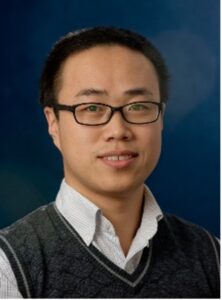
Dr. Xueguan Song is currently a professor in the School of Mechanical Engineering at Dalian University of Technology (DUT), China. He received the B.S. degree in mechanical engineering from DUT in 2004, and the M.S. and Ph.D. degrees in mechanical engineering from Dong-A University, Busan, South Korea, in 2007 and 2010, respectively. He was a Researcher Associate in the Department of Electrical & Electronic Engineering at Newcastle University, UK, from 2012 to 2014. He has published over 200 peer-reviewed journal/conference papers and two books in the field of computational modelling and simulation, surrogate-based design optimization, design of high-performance valves. He is the recipient of best paper award at a number of international conferences. He led the development of a cloud-based DAta-Driven Optimization Software ‘DADOS’ (www.dados.com.cn). His current research expertise and interest lie in the field of surrogate modeling, multiphysics simulation, multidisciplinary design optimization, and digital twins.
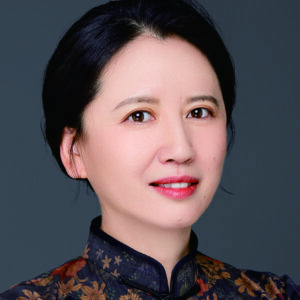
Dr. Yan Chen is a Chair Professor, Department of Mechanical Engineering, Tianjin University, China. She received her Ph.D. in structural engineering from University of Oxford, M.S. and B. Sc. in applied mechanics from Jilin University of Technology. Her research focuses on the kinematics of mechanisms. In the interdisciplinary area among kinematics, mechanics, and structural engineering, she has set up a research field including fundamentals of kinematic theory, deployable structures, and metamaterials, as well as their applications.

Dr. Yaoyao Fiona Zhao is currently an Associate Professor and the head of the Additive Design and Manufacturing Laboratory (ADML) at the Department of Mechanical Engineering in McGill University. She received the Bachelor of Engineering degree from Beijing Institute of Technology, Beijing, China, in 2003, and the Master of Mechanical Engineering degree (First Class Hons.) and Ph.D. degrees from the University of Auckland, Auckland, New Zealand, in 2006 and 2010, respectively. She was a Researcher at the National Institute of Standards and Technology, Gaithersburg, MD, USA, and a Post-Doctoral Research Fellow at Ecole Centrale de Nantes, France, from 2010 to 2012. Her research expertise lies in the general field of design and manufacturing including the exploration of new design methods for additive manufacturing and sustainable manufacturing, developing computational and data analytic tools to improve manufacturing intelligence and cognition. Her team is leading the research in Design for Additive Manufacturing with the development of new design methods and tools to achieve light-weight, multi-functionalities, less part count, better performance and better sustainability performance.

Dr. Zhenghui Sha is an Assistant Professor in the Walker Department of Mechanical Engineering at the University of Texas (UT) at Austin. Before joining UT, he was an Assistant Professor in the Department of Mechanical Engineering at the University of Arkansas and a Postdoctoral Fellow in the McCormick School of Engineering at Northwestern University. Dr. Sha received a Ph.D. from Purdue University in Mechanical Engineering. Dr. Sha’s research focuses on system science and design science as well as the intersection between these two areas. Dr. Sha is the recipient of the 2022 Young Engineering Award (YEA) from the Computers & Information in Engineering (CIE) Division of the American Society of Mechanical Engineers (ASME) and received the Best Dissertation of The Year Award in 2017 from the ASME CIE Division. He received the ASME Robert E. Fulton Best Paper Award twice, in 2013 and 2017. He is the recipient of the 2021 Outstanding Faculty Members of the Year Award, the 2020 Outstanding Teaching Award, and the Open Education Resources (OER) Initiative Award from the University of Arkansas. He was the Reviewer with the Distinction Award for the Journal of Mechanical Design and received the Technical Committee Leadership Award from the ASME CIE Division in 2020. Dr. Sha is the inaugural Chair of the ASME-CIE Hackathon.
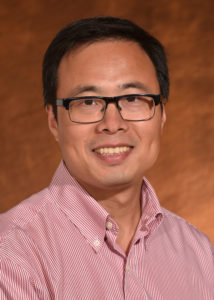
Zhimin Xi is an Associate Professor in the Department of Industrial and Systems Engineering at the Rutgers University – New Brunswick. He received his B.S. and M.S. degree in Mechanical Engineering at the University of Science and Technology Beijing in 2001 and 2004, respectively. He obtained his Ph.D. in Mechanical Engineering (Program of Reliability Engineering) at the University of Maryland – College Park in 2010. His research interests are design for reliability and the applications for reliable autonomous vehicles/robots, lithium-ion batteries, and additive manufacturing. He is the recipient of 2021 ASME – Design Automation Young Investigator Award, 2019 Rutgers A. Walter Tyson Assistant Professorship Award, and 2016 DARPA – Young Faculty Award.
Guest Editors

Cyril Picard is a Swiss National Science Foundation Postdoctoral Fellow at the Massachusetts Institute of Technology (MIT). He received is B.Sc., M.Sc., and Doctor of Science, all in Mechanical Engineering from EPFL (École polytechnique fédérale de Lausanne). His research is focused on exploring the use of machine learning to support the design of complex mechanical systems.

Stefan Menzel is a Chief Scientist with the Optimization and Creativity Group at the Honda Research Institute Europe, Offenbach, Germany. He received a Dipl.-Ing. degree in civil engineering from RWTH Aachen University, Aachen, Germany, and a Ph.D. degree in civil engineering from Technical University Darmstadt, Darmstadt, Germany. His current research interests include evolutionary optimization with special focus on adaptive representations, machine learning for knowledge transfer, and multidisciplinary optimization for real-world applications.

Tino Stankovic is a senior scientist at Engineering Design and Computing Laboratory at ETH Zürich in Switzerland. His research focuses on developing computational models, methods and tools to support the design for additive manufacturing as well as design optimization, and design automation. Current interests include development of advanced computational design methods to automatically generate and optimize lattice structures, computational design of origami-adapted rigid-foldable structures, and computational design of 3D printed, personalized medical devices. Tino Stankovic serves as a reviewer for several established scientific journals and conferences. He is a member of the Design Society.
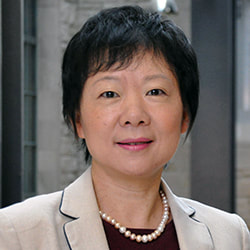
Dr. Wei Chen is the Wilson-Cook Professor in Engineering Design and Chair of Department of Mechanical Engineering at Northwestern University. She received her Ph.D. from the Georgia Institute of Technology, M.S. from University of Houston, and B.S. from Shanghai Jiao Tong University (China), all in mechanical engineering. Dr. Chen is an elected member of the National Academy of Engineering (NAE) and fellow of ASME. She currently serves as the President of the International Society of Structural and Multidisciplinary Design (ISSMO). In the past, she served as a member then Chair of the ASME Design Engineering Division (DED) Executive Committee and was an elected Advisory Board member of the Design Society. Before becoming the editor-in-chief of JMD, Dr. Chen was the Associate Editor of the JMD, Design Science, and the SIAM/ASA Journal on Uncertainty Quantification (JUQ). She also served as the Review Editor of the Structural and Multidisciplinary Optimization (SMO) and the Department Editor for the IIE Transactions. Dr. Chen was the recipient of the joint ASME and Pi Tau Sigma Charles Russ Richards Memorial Award (2021), ASME Robert E. Abbott Award ( 2019) for life time service, ASME Design Automation Award (2015), Intelligent Optimal Design Prize (2005), ASME Pi Tau Sigma Gold Medal achievement award (1998), and the NSF Faculty Career Award (1996). Her research team has received five ASME Design Automation Conference Best Paper Award (2019, 2016, 2014, 2012, and 1998) and the JMD Editors’ Choice Award (2014).


